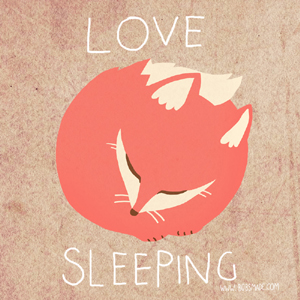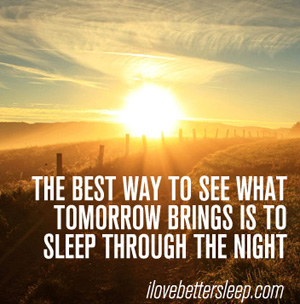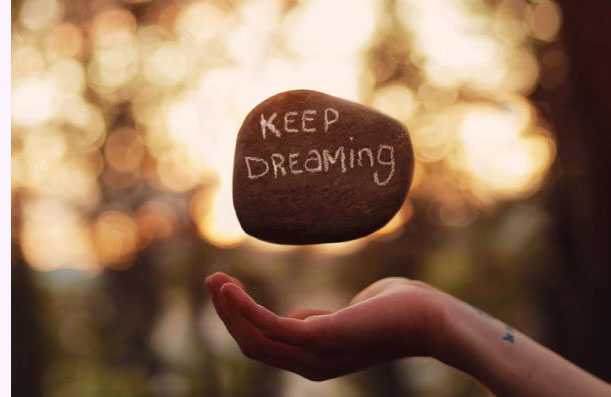Body at Rest; Life in Motion
“You’re not healthy, unless your sleep is healthy.”
– Dr. William Dement, called the Father of Sleep Medicine
This site is a haven for Wellness seekers; those desiring a healthy, more joyful existence. There is an active component to that—a pursuit. Maybe we are driven toward wellness by a past of ill-health or willfully unhealthy living. Maybe we strive for wellness as the pinnacle of a balanced body, mind and spirit. Either way, it’s a conscious effort that often overlooks one of the most crucial components of a well lived life; sleep.
 “More than 30 percent of adult Americans, about 60 million people, complain of difficulty sleeping…sleep is a big problem,” according to Dr. Paul Spencer. Of those who don’t complain of it, another high percentage of American people get less sleep, or worse sleep than they can afford based on culture, work ethic, leisure attitude or how outdated medical thinking viewed sleep. “This boggles the mind,” Dr. Spencer said. We’re setting productivity standards that date back to the industrial revolution but “almost everything we do know about human sleep has been learned in the last 50 years” (Spencer, 2012).
“More than 30 percent of adult Americans, about 60 million people, complain of difficulty sleeping…sleep is a big problem,” according to Dr. Paul Spencer. Of those who don’t complain of it, another high percentage of American people get less sleep, or worse sleep than they can afford based on culture, work ethic, leisure attitude or how outdated medical thinking viewed sleep. “This boggles the mind,” Dr. Spencer said. We’re setting productivity standards that date back to the industrial revolution but “almost everything we do know about human sleep has been learned in the last 50 years” (Spencer, 2012).
I’ve come to realize that I’m part of the problem. Adults need 7-9 hours of sleep or “the body doesn’t have time to complete all of the phases needed for muscle repair, memory consolidation and release of hormones regulating growth and appetite” the National Sleep Foundation reported, but I usually allow myself 5-6, and many of us do the same (2015).
Dr. Spencer (2012) said that this cultural tendency to put other things ahead of sleep on the priority list is due to “our use of artificial light to extend our day and defy our natural rhythms” but that “We have just begun to understand the consequences of this Promethean sin…In the same way that food products/supplements are replacing normal eating with dire health effects, sleep continues to be condensed by the 24/7 culture.”
There is a battle for our brains. Our attention-span is like a doll caught between the arguing toddlers of work and leisure, and our sleep suffers, because our minds remain in a state of arousal. “If you can successfully shut off the analytical or problem-solving side of your brain and allow sleep to occur naturally,” the WiseGeek (2015) admonished, “you should be able to sleep through the night without interruption and wake up in the morning feeling as if you have indeed gotten some meaningful rest.” But that is the battle. Can we shut off our brains anymore? And, really—with TV to watch, the net to surf, video games to play, work that we take home and social media to update, is it really more fulfilling to shut down?
Sleep, Huh? What is it good for?
“The bed is a bundle of paradoxes: we go to it with reluctance, yet we quit it with regret…“
– Charles Caleb Colton, Eccentric English Writer
We each must decide if the benefits of sleep outweigh the benefits of seeing the end of Game of Thrones or other manner of digital distraction, so let’s make an informed choice based on the science. In a typical  night, our sleep runs “a cycle that repeats itself about every 90 minutes” beginning with, and dominated by, Non-Rapid Eye Movement sleep or NREM which is made up of four stages. In stages one and two we move from “being awake and falling asleep then…becoming disengaged from surroundings” as our bodies seek repair in stages 3 and 4 the “deepest and most restorative sleep…blood pressure drops, breathing becomes slower, muscles are relaxed, blood supply to muscles increases, tissue growth and repair occurs, energy is restored, hormones are released…essential for growth and development, including muscle development,” (NSF, 2015).
night, our sleep runs “a cycle that repeats itself about every 90 minutes” beginning with, and dominated by, Non-Rapid Eye Movement sleep or NREM which is made up of four stages. In stages one and two we move from “being awake and falling asleep then…becoming disengaged from surroundings” as our bodies seek repair in stages 3 and 4 the “deepest and most restorative sleep…blood pressure drops, breathing becomes slower, muscles are relaxed, blood supply to muscles increases, tissue growth and repair occurs, energy is restored, hormones are released…essential for growth and development, including muscle development,” (NSF, 2015).
In that way, for 75% of the night, our body eventually gets repaired. At the end of each one of those 90 minute cycles, we have the sweet spot of REM sleep (Rapid Eye Movement), where dreams occur and the mind is restored—made famous by sci-fi and horror movies and a certain titan of alternative rock music. According to the NSF (2015) it’s more than a stage when our eyes move independently and we dream. REM “first occurs about 90 minutes after falling asleep and recurs about every 90 minutes [and] provides energy to brain and body, supports daytime performance [to] promote alertness in morning.”
If we sleep well through the four stages and into REM sleep, we are more likely to be sharp, energized and mentally ready to take on the day. Emotionally, we will feel more balanced, flexible and capable since many of the prior days challenges will be settled into our subconscious or forgotten. Physically, we will feel vigor and less aches, fight infection and also have less risk of over-indulgence in food, caffeine or alcohol in response to unresolved hormonal needs.
On the surface it does not appear like staying up to finish the episode of Mr. Robot will be as fulfilling or getting to the next save point bring the same satisfaction. But really, what’s the down-side? Along with waking up “less prepared to concentrate, make decisions, or engage fully in school and social activities” (NSF, 2015), Dr. Spencer reminds that “The Exxon Valdez oil spill and the Three Mile Island and Chernobyl nuclear power plant accidents were attributed in part to the consequences of compromised night shift workers” because of the damage to physical, mental and emotional health. Lack of sleep makes it harder to remember and learn and “has been linked to obesity, hypertension, insulin resistance, cardiac disease, and compromised immune function.”
Body at Rest; Life in Motion
“Oh boy, sleep! That’s where I’m a Viking!”
– Ralph Wiggum, Sleep Viking
How can we sleep more, or better, when work demands more of our time and On Demand works for our constant attention? Dr. Shepherd, (2012) encourages us to “get a feel for what your sleep cycle looks like,” and I concur. Though Dr. Shepherd is a proponent of sleeping in two bouts, based on our cycles, and the NSF still urges 7-9 straight hours, the key is to find what works for us. The National Sleep Foundation offers this Sleep Diary, but there are many out there. Some use a smartwatch to track their nightly heart rhythm.
 Once we have data, then comes change; change can be hard. “Many sleep experts suggest turning off the television set, radio or computer at least an hour before bedtime to improve your ability to sleep through the night,” (WiseGeek, 2015) because “too much visual or audio stimulation shortly before bedtime can keep your brain active for hours.” Restraint of the digital downtime is probably the hardest part, and most crucial detail, for those of us with active brains. Turning off the TV, games, phone or computer an hour before bed brings a thrill of fear similar to the addict considering dropping the needle. But the battle for sleep is personal, waged in the mind, and we can use the same desires that push us from sleep to pull us towards it. We are seeking a digital version of the emotional, physical and mental release that is found in sleep; it really can’t fulfill. So let’s use that same desire in a way that can fulfil us.
Once we have data, then comes change; change can be hard. “Many sleep experts suggest turning off the television set, radio or computer at least an hour before bedtime to improve your ability to sleep through the night,” (WiseGeek, 2015) because “too much visual or audio stimulation shortly before bedtime can keep your brain active for hours.” Restraint of the digital downtime is probably the hardest part, and most crucial detail, for those of us with active brains. Turning off the TV, games, phone or computer an hour before bed brings a thrill of fear similar to the addict considering dropping the needle. But the battle for sleep is personal, waged in the mind, and we can use the same desires that push us from sleep to pull us towards it. We are seeking a digital version of the emotional, physical and mental release that is found in sleep; it really can’t fulfill. So let’s use that same desire in a way that can fulfil us.
If the emotional struggle of our day keeps us awake, or seeking digital restoration, head to a soothing book, jot it down in a journal or art work. Consider that pre-sleep phase a “me time” and a great opportunity to settle. Candles, aromatherapy misters, special soft slippers can all serve as good sleep hygiene rituals that affirm us much more than our Facebook feeds or false-inclusion in “Must See TV.”
This “me time” can help our bodies settle, perhaps “taking a long soak in a hot bath or practicing relaxation exercises [to] disconnect from the events of the day and concentrate on getting a full night’s rest.” A simple way to help the body sleep is to “avoid eating a heavy meal or drinking caffeinated beverages shortly before your preferred bedtime” and “be sure to take care of any bathroom needs,” (WiseGeek, 2015).
This practice can also transition into setting up a sleep-friendly bedroom to “reduce physical and environment factors which can cause you not to sleep through the night,” including use of a fan, sound generator (WiseGeek, 2015), or lowering the temperature in pursuit of Stage Two NREM sleep when body temperature cools and blood pressure drops (NSF, 2015). Indulging in a great mattress and pillow are actually both well-studied ways to increase our sleep and can go a long way to showing ourselves how much we value our rest. Imagine spending as much on a bed and pillow set as on a television or computer.
I am not alone in wrongfully believing my sleeping hours as wasted time; we are culturally raised to believe it. But the NSF (2015) asserts the opposite. “The one-third of our lives that we spend sleeping, far from being ‘unproductive,’ plays a direct role in how full, energetic and successful the other two-thirds of our lives can be.” Wellness is all about living a full, energetic and successful life each day and that day begins even before we open our eyes.
__________________________________________________
National Sleep Foundation (2015) What Happens When You Sleep? Retrieved from: http://sleepfoundation.org/how-sleep-works/what-happens-when-you-sleep
National Sleep Foundation Sleep Diary (2015) Retrieved from: http://sleepfoundation.org/how-sleep-works/how-much-sleep-do-we-really-need/page/0/1
Spencer, P. (2012) Why You Can’t Sleep Through the Night. Huffington Post. Retrieved from: http://www.huffingtonpost.com/paul-spector-md/why-you-might-have-troubl_b_1883811.html
WiseGeek.com (2015) Retrieved from: http://www.wisegeek.org/how-can-i-sleep-through-the-night.htm


